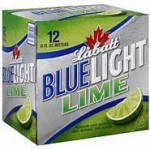Labatt distributor shows why contracts must work with the law and can’t just change it.
Link: Esber Beverage Company v. Labatt USA Operating Company (Ohio Supreme Court)
Every now and then I get a request to draw up an agreement that does not jive with the law. I’ll get suggestions such as, “Just call it something else, like “Consulting Agreement.’” I have to say, “It doesn’t work that way. The contract has to work within the framework of the law. Sorry.”
How is this relevant to anything? Well, because when a manufacturer sell its rights relating to a particular brand of alcohol to a successor, the new owner can terminate any distributor’s franchise without cause. At that point, the new owner’s obligations are notice and compensation.
We learn this because Esber Beverage Company was a long-time distributor of Labatt for InBev. InBev went on to merge with Anheuser-Busch. Because easy is cheap, the U.S. Department of Justice would not allow this merger to proceed without some sort of obstacle. With no consideration at all of the good folks who distribute Labatt, the Justice Department forced the merged company to divest itself of all assets relating to Labatt. A new company backed by private equity firm KPS Capital Partners, L.P. purchased the rights to Labatt and terminated Esber.
Esber sued claiming that the statute only applied when there was no written agreement.
The court didn’t buy it.
Pursuant to the statute, every manufacturer of alcoholic beverages must offer its distributors a written franchise agreement specifying the rights and duties of each party. If the parties do not enter a written franchise agreement, a franchise relationship will arise as a matter of law when a distributor distributes products for 90 days or more. So far so good.
The statute also sets forth how to cancel or terminate a franchise. There are three situations:
- With prior consent and 60 days’ notice
- With “just cause,” and the statutes explains what this means.
In addition, in either case, the manufacturer must repurchase all of the terminated distributor’s unsold inventory and sales aids.
However, the statute also provides for terminating a franchise when the manufacturer sells a particular brand or product of alcoholic beverage to a successor manufacturer. If a successor manufacturer acquires all or substantially all of the stock or assets of another manufacturer, the successor manufacturer may give written notice of termination, nonrenewal, or renewal of the franchise to a distributor of the acquired product or brand. On termination of the franchise, the successor manufacturer must repurchase the distributor’s inventory and must compensate the distributor for the diminished value of the distributor’s business that is directly related to the sale of the terminated product, including the appraised market value of the distributor’s assets devoted to the sale of the terminated product and the goodwill associated with that product.
This was not enough for Esber, which asserts that the statute does not permit a successor manufacturer to terminate when the successor manufacturer has itself entered into or assumed a written contract with the distributor. The court disagreed and quoted another case for the proposition:
“When a statute’s language is clear and unambiguous, a court must apply it as written.”
It continued:
“The plain language of the statute allows the successor manufacturer to terminate a franchise. The definition of “franchise” includes both written franchise agreements and franchise agreements that have arisen by operation of law.”
As a result, the new owner can terminate Esber and Esber is entitled to compensation. However, the contract does not trump the statute.


